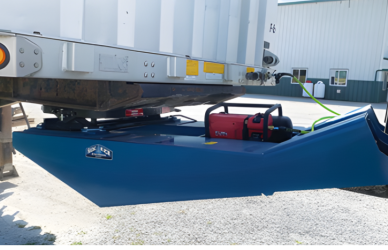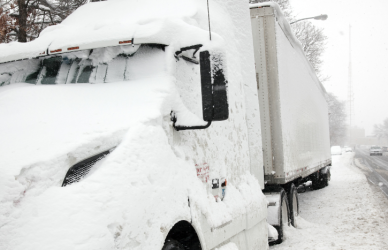Navigating the trucking industry requires more than just skilled driving—it demands comprehensive trucking insurance to protect against various risks. This blog will explore the essential types of trucking insurance, their benefits, and how to choose the right coverage for your needs.
Types of Trucking Insurance
- Liability Insurance
Liability insurance is a fundamental requirement for all commercial truck drivers. It provides coverage for damages caused to other people and property in case of an accident where you are at fault. The Federal Motor Carrier Safety Administration (FMCSA) sets the minimum coverage requirements, which are:
- $750,000 for general freight carriers.
- $1 million for hazardous materials carriers.
- $5 million for certain high-risk cargo like explosives.
- Cargo Insurance
Cargo insurance is crucial for protecting the freight you transport. This coverage addresses damages or losses resulting from theft, fire, or accidents. The insurance amount should align with the cargo’s value to ensure adequate protection.
- Physical Damage Insurance
Physical damage insurance covers repairs or replacement costs for your truck in case of damage due to accidents, vandalism, or natural disasters. This type of insurance is essential for safeguarding your vehicle from various risks.
- Bobtail Insurance
Bobtail insurance, or non-trucking liability insurance, provides coverage when driving your truck without a trailer or during off-duty periods. This policy is vital for independent owner-operators who want protection when not hauling freight.
- Occupational Accident Insurance
Occupational accident insurance offers benefits if you are injured while on the job, covering medical expenses, lost wages, and related costs. Although not a substitute for workers’ compensation, it provides additional protection for independent truck drivers.
- General Liability Insurance
General liability insurance protects against third-party claims for bodily injury, property damage, and advertising injuries that occur on your business premises or as a result of your operations. This insurance is crucial for mitigating lawsuits and claims.
Benefits of Trucking Insurance
- Financial Protection
Trucking insurance provides vital financial protection against potential losses, including vehicle damage, cargo loss, and liability claims. Without proper insurance, the financial impact of accidents and other incidents could be significant.
- Compliance with Legal Requirements
Maintaining the required types of trucking insurance ensures compliance with federal and state regulations, helping you avoid fines and legal issues. The FMCSA and state laws mandate specific insurance coverage for commercial trucks.
- Peace of Mind
Having comprehensive trucking insurance offers peace of mind, knowing you are protected against various risks. This allows drivers to concentrate on their primary responsibilities—safely transporting goods—without excessive worry.
- Enhanced Business Reputation
A well-insured trucking business often enjoys a better reputation among clients and partners. It reflects professionalism and reliability, providing a competitive edge in the industry.
How to Choose the Right Insurance
- Evaluate Your Needs: Assess factors such as the types of cargo you transport, the value of your truck, and operational risks to determine your insurance requirements.
- Consult with an Insurance Agent: An experienced agent can tailor a policy to fit your specific needs and ensure adequate coverage.
- Compare Policies: Review various insurance providers and policies to find the best match for your business.
Trucking insurance is essential for managing risk and ensuring the smooth operation of your trucking business. By understanding the different types of insurance available and their benefits, you can make informed decisions to protect yourself, your truck, and your cargo.











